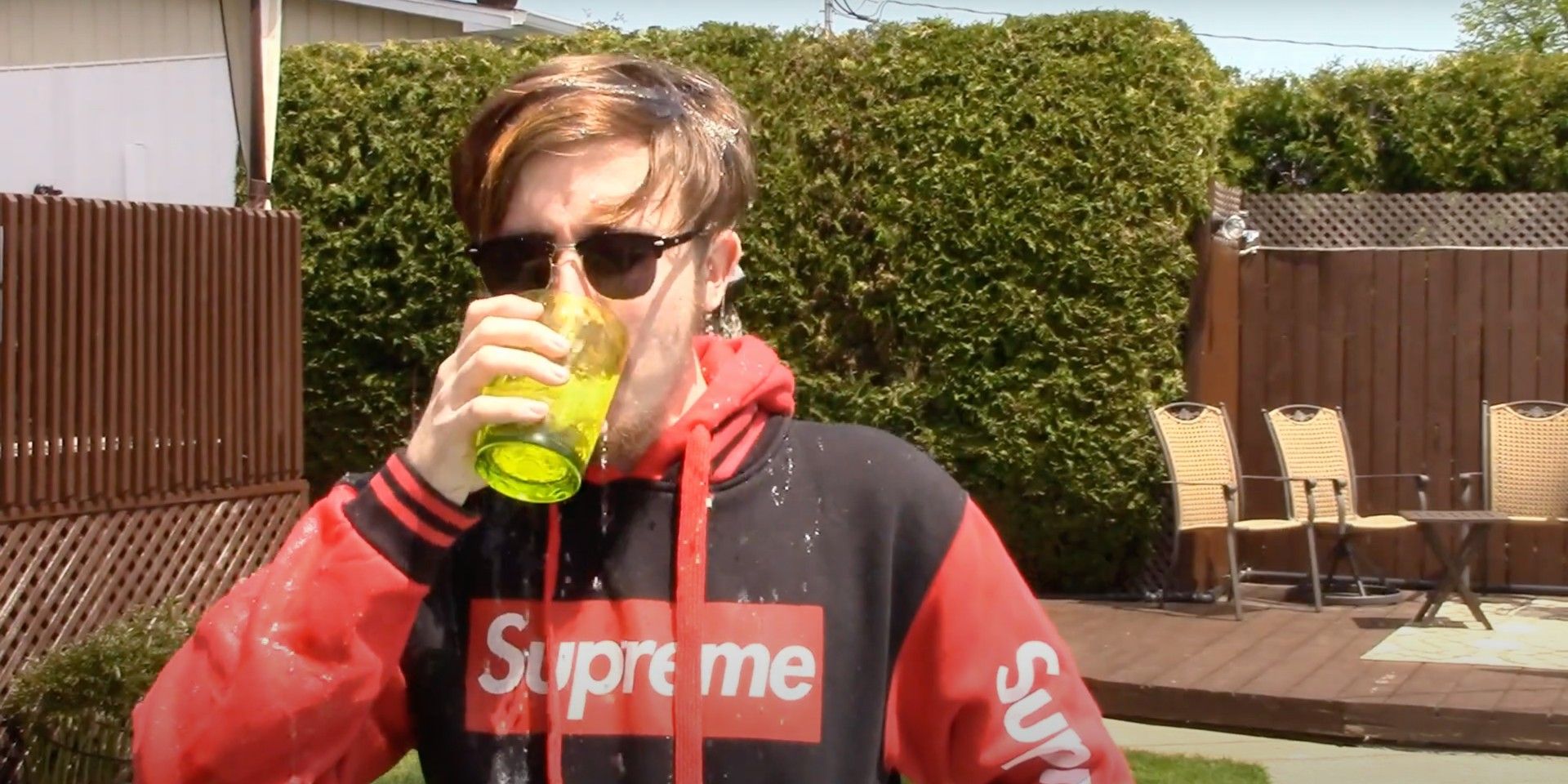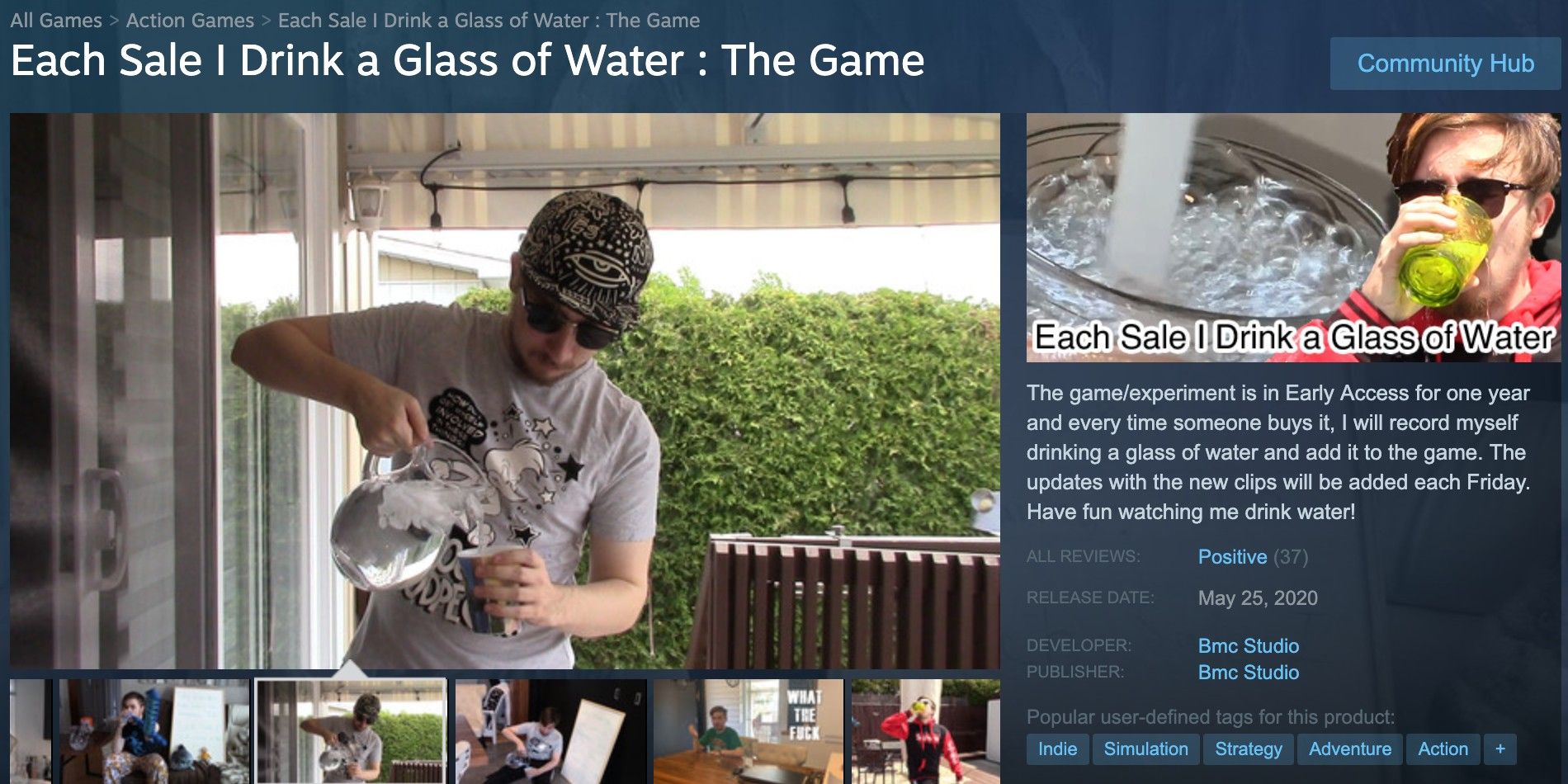As video games have rapidly evolved over the last several decades, gamers have seen everything from blockbuster releases like Halo 2 and Red Dead Redemption to experimental and quirky titles such as Goat Simulator and The Stanley Parable. However, what always unites these games -- and separates them from other mediums such as film -- is that they are interactive in some way -- although Bmc Studio's Each Sale I Drink A Glass of Water: The Game plays with that concept.
Each Sale promises that for every purchase, the developer will record himself drinking one glass of water and later upload it for everyone to view. As odd as this concept may be and as much as it may be just a joke, it still merits some consideration.
Although not widely known, Bmc Studio seems to generally produce low-effort games that seek to capitalize on their oddity, pop-culture relevance and/or humor, such as Coughing Simulator 2020 and Sanic the Hawtdawg. By the developer's own admission, games are made "in a day or two" and "[don't] sell well." Furthermore, according to Bmc founder Alain Lagacé, its titles are closer to "interactive movies," blurring the line between video games and films.
In fact, Valve to removed Each Sale on April 24, citing a lack of interactivity to qualify it for Steam. Each Sale was returned to the store shortly after, following the complimentary addition of a different but more traditional video game, Jetpackin' Heat, to the purchase.
Since then, Each Sale has been met with a wide variety of mixed responses. Some have expressed genuine interest in the project, while others have openly criticized it and others expressed concern over the possible health risks involved if Lagacé were to drink too much water in one sitting. Regardless of the question of the artistic value of Each Sale, it must be said that the experiment seems to be an interesting challenge to how the industry and fans define a game.
To a certain extent, the effort being made seems to resemble performance art, albeit with extensive audience interaction, although that could be a slight mischaracterization. From a purely objective stand-point, games are similar to art in that they both provide entertainment, but different in that art typically carries some symbolic meaning. Bmc does not seem to be making the claim of any underlying meaning; therefore, if gamers derive some form of entertainment from the videos, even if just for its value as a joke, the package could by all means be considered a game.
Drawing sufficient parallels to consider the question is difficult. Waiting for Godot: The Video Game is just as absurd an experience as the play it was inspired by, but even its 8-bit aesthetic more closely resembles a traditional video game than Each Sale. In terms of substance, Each Sale is probably more comparable to a celebrity app, offering fans a more personalized and direct experience with a specific person -- in this case by watching him drink copious amounts of water.
The evolution of any medium will naturally lead creators to push boundaries. Some efforts will result in hits, while others will invariably lead to misses. Where Each Sale might eventually land is still up for debate, especially since Bmc seems to not be taking the effort incredibly seriously and does not consciously make any sort of statement. For now though, it might be worth keeping an eye on, even if just for the pure oddity of it.



